Estimated reading time: 8 minutes
You’ve got chickens… but what do you do with all that chicken poo? Chicken poop can be smelly, dirty, and even dangerous. However, Chicken poop also makes an excellent addition to your garden as long as you use it the right way. One of the best ways to manage the amount of chicken poo is to compost it, which will turn it into a rich fertilizer for your garden and flower beds.
In this article, we’ll talk about the best way to compost your chicken poo. We’ll also talk about ways you can use it – and why you can’t just throw it in your garden as is. But first, let’s take a look at the basics of composting.
Want to save this post for later? Click Here to Pin It On Pinterest!
Composting 101
You can think of composting as nature’s recycling center. Everything in nature breaks down eventually, but composting creates ideal conditions that will speed up the process and turn leaves, yard waste, and even kitchen scraps into nutritious fertilizer.
The Compost Recipe
Every compost pile or bin needs four parts to thrive: oxygen, water, nitrogen, and carbon.
Carbon items are also known as “browns” – these include items such as dead leaves, branches, twigs, paper, and even cardboard.
Nitrogen, or greens, includes waste such as food waste, fresh grass clippings, coffee grounds, and chicken poo!
Ideally, you’ll want about 25 parts carbon to 1 part nitrogen. So if you have a lot of chicken poo to compost, you’ll want a lot of dead leaves and paper, too. The large amounts of carbon in the pile mitigate any offensive odors- so you won’t have to worry about the smell.
The Composting Process
To start the compost process, you create the layers of browns and greens, making the brown layers much thicker than the green.
This will help to create air pockets and space, which allows oxygen to get to the all the different parts of the compost. You’ll also want to use a shovel or pitchfork to turn the pile from time to time to help aerate it some more.
Of course, if you allow your chickens access to your compost pile, they’ll do this for you! They’ll also eat the yummy bugs that are attracted to the pile, as well as any kitchen scraps that look tasty. And yes, they’ll add some additional poo, too!
The entire mix needs to be kept damp. You won’t have to worry about your pile if it rains regularly, that will be enough water to keep it wet.
But if you live in a dry area, you’ll want to wet it down from time to time so that it has the consistency of a damp sponge. Too much water (or too much nitrogen) will make your pile slimy and smelly. Too little, and it won’t get hot – it’ll take much longer to break down.
Ideally, you’ll want your compost to age for about a year before putting it into your garden, but if your pile is hot enough, it could be ready sooner. Many gardeners will set up multiple compost bins so they can age throughout the year.
How Not to Use Chicken Poo
Chicken manure is very high in ammonia, which is often referred to as being ‘hot.’ If you were to place chicken manure directly onto your garden, it could burn the plants. This could easily kill your garden and waste all of your hard work. Goat and rabbit manure, on the other hand, are lower in ammonia. You can apply their manure directly to your garden, if necessary.
On the other hand, chicken poop can carry bacteria. If you put it directly into your garden, rain, and watering can splash the manure onto the plants. Not only is this harmful to the plants, but it means that bacteria such as Salmonella and Campylobacter can splash onto the plants or be present in your garden. This can infect you or your family when you go to eat from your garden.
But don’t give up on chicken poop just yet! There are several different ways to mitigate the risks of using chicken manure in the garden. One method is to compost it.
How to Compost with Chicken Poo
If you already have a compost pile, you’re off to a great start to managing your chicken poo. A compost pile is probably the best way to contain the smell, ammonia, and bacteria and turn it into something good for your garden.
Compost Piles
One of the easiest ways to use chicken manure is to mix it into your compost pile. You’ll need to count it as a ‘green,’ so make sure that there are plenty of browns (cardboard, dead leaves, and twigs) to mix in. Create layers of greens and browns, like lasagna, within the compost pile to make sure there is plenty of air. Wet down the compost pile just a little bit.
If you have the optimum mix of ingredients, you’ll notice that after a few days the pile produces heat. This heat helps to kill bacteria and break down the ingredients more quickly. Some gardeners will put compost bins in their greenhouses in late fall and plant in containers over top of the bins to extend their gardening season a little bit further.
You’ll need at least 90 days to break down the chicken poo into a usable fertilizer, but if your compost mix isn’t ideal, it could take longer. A hot compost pile will break down faster than one that is not producing a lot of heat. A year is ideal to get the most out of your compost.
The Deep Litter Method
If you don’t have a spot for composting, you might consider using the deep litter method. This is a great way to keep your chickens warm and toasty in the winter while maintaining a healthy coop and creating compost. It was created around WWII when materials were scarce.
To create the deep litter method, you’ll want to use the same idea as composting by creating layers of greens (the chicken poo) and browns (your chicken’s bedding).
Your chickens will naturally poop all over the inside of their coop as they go about their day. Every few days to a week (depending on how many chickens you have), you’ll need to add a layer of bedding. Dried straw and hay are ideal for this, as are dried leaves and cardboard.
Pine shavings don’t work well for this application, although they are popular in chicken coops. Pine shavings take too long to break down, so they won’t give you nice, composted fertilizer that quickly.
You probably won’t need to turn over the bedding, as the chickens will naturally turn it over. You don’t really want to wet it down since it might cause the chickens to be wet.
Throughout the winter, the bedding and the chicken poo will break down, releasing heat that warms the coop.
In the spring, you’ll be able to shovel the broken-down bedding and layer it over the top of your garden before tilling and planting.
Chicken Manure Tea
Chicken manure tea is another way to use the chicken poo from your chicken coop.
First, you’ll need to create some kind of a tea bag. An old pillowcase is ideal.
Fill the pillowcasepartway with fresh or aged chicken manure. Tie it up with twine or string, and place it into a large container, like an empty trash can or bin. Fill the bin up with water. You might need to weigh your bag down with something heavy, like a large rock.
You’ll need to agitate the water once a day, keeping the bag submerged at all times.
Allow your ‘tea’ to steep for about three weeks.
Don’t drink your tea! Instead use it to fertilize your plants. You can dump the contents of the tea bag into a compost pile or dig it down deep into the garden.
Post-Gardening Season
If all this seems like too much work, don’t worry. The easiest thing to do is to keep all that poop in a pile somewhere out of the way. Once the gardening season is over, you can then distribute the poop throughout your garden.
Spread it evenly over your garden as soon as you are done gardening. Over the winter, the poo will break down enough that you can till it into your garden without fear of it harming your plants.
Final Thoughts on Chicken Poo
Chicken poo really does make a great fertilizer for your garden, as long as you use it safely. Composting your chicken poo will reduce or even eliminate the risk of bacteria, such as salmonella, while breaking down the ammonia that can burn your plants.
Whenever you work with your chicken manure, you’ll want to take some safety precautions. Gloves can reduce your risk of contamination, and a mask will reduce the odor and ammonia that you breathe in.
Once it is well composted, your chicken manure will safely feed your garden, helping you grow plenty of healthy, fresh vegetables for you and your family.
Like this post? Don't Forget to Pin It On Pinterest!
You May Also Like:

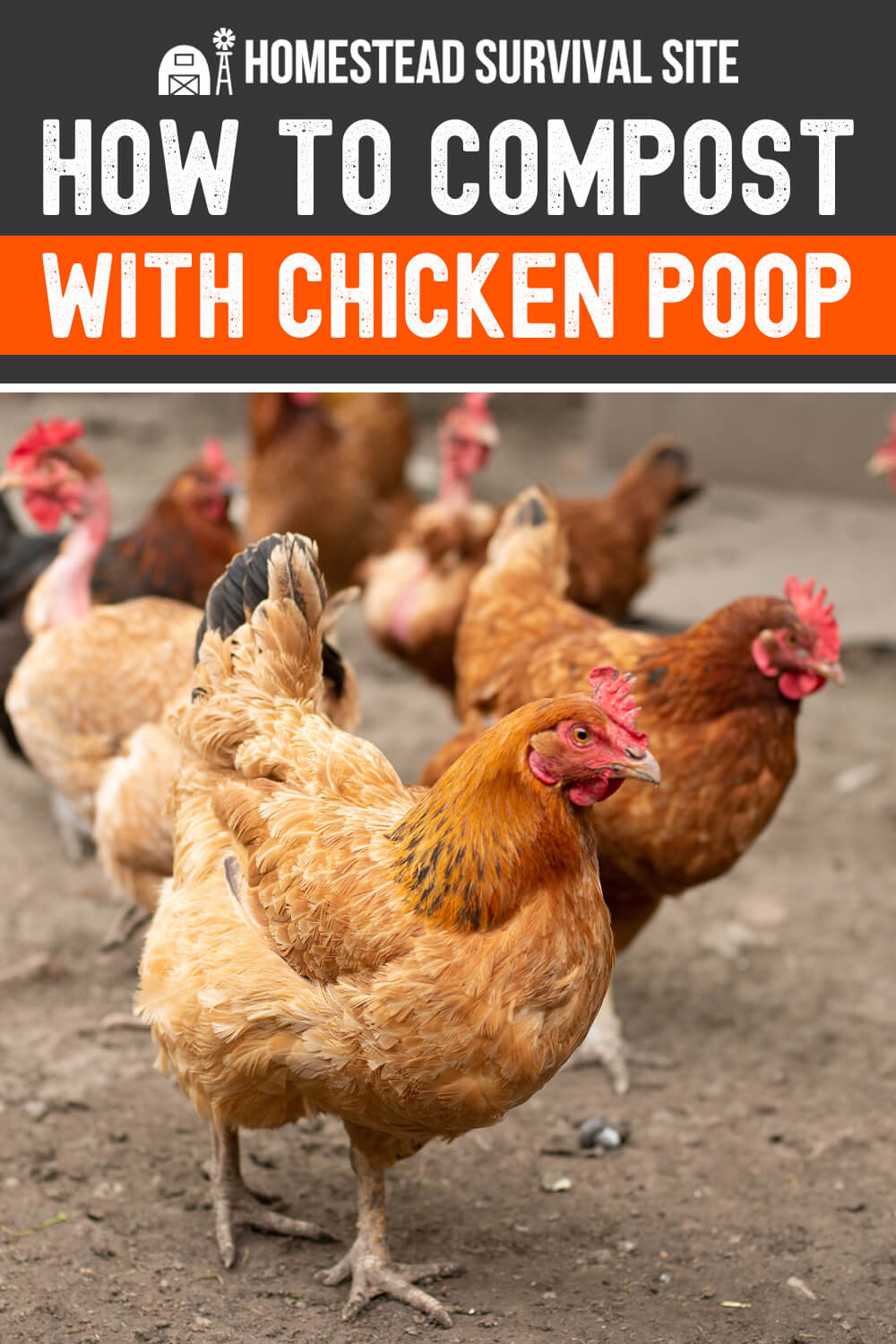


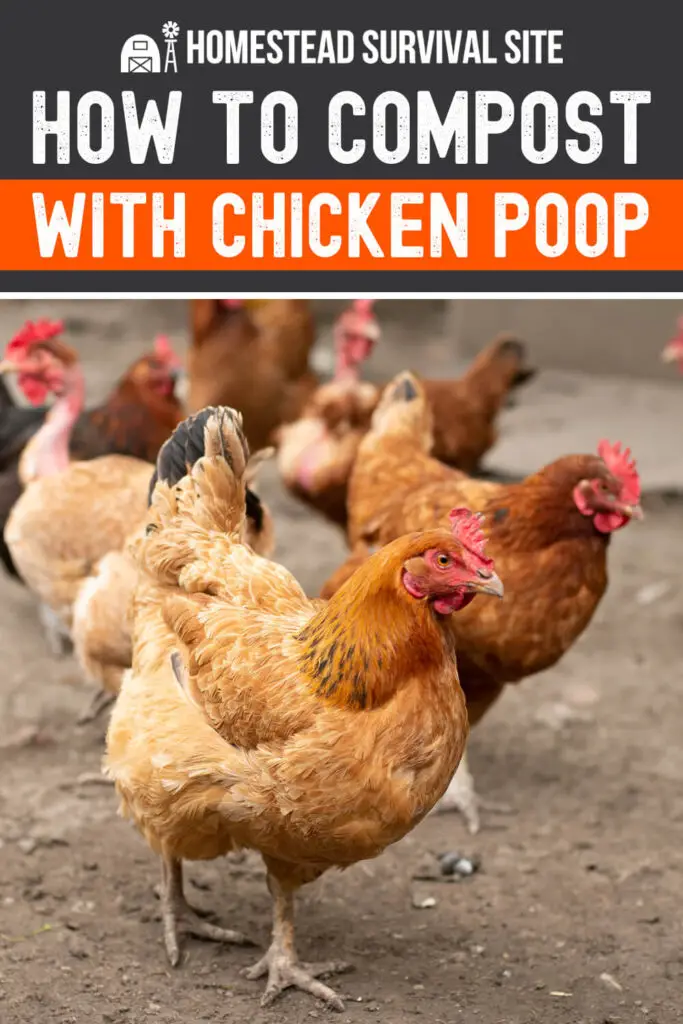

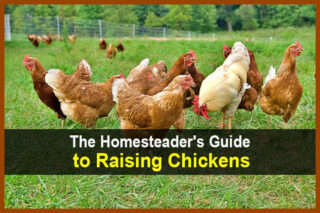
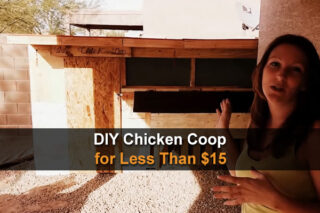

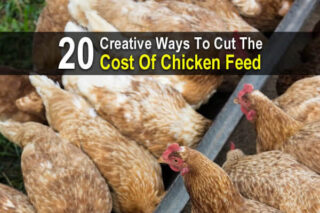
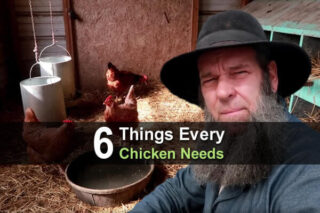


A story about my sister’s chicken ranch in Florida. they had four barns that were fully automated. on the day the trucks picked them up the barns were cleaned for the next batch. Each barn had a belt that was the floor. it would take all the waste out and dump it into a pit built to hold it. They also raised pigs in a similar barn except it had a pit under the floor that carried the waste out. one day the primary breeding sow escaped her pen and went over and was munching down on the waste from the chickens. thinking it may hurt her they sent samples to a lab to test and be sure. what the lab report said was that it wouldn’t hurt her and was actually nutritious.. they started mixing the piles into the pig feed and they got fatter more quickly according to the records they kept for each animal. chicken’s digestive tract is very inefficient. that is why they must eat all the time. While I am not saying to feed the chicken waste to your pigs It may not harm them. keep in mind that these chickens were eating a very selected diet. So take this only as an interesting story. what we do is convert one energy into another its the way of the world where nothing is eliminated only converted into what we need. so why do I relay this story? do scientists believe they can produce meat protein better than nature? think on that when we vote for politicians that work to enrich their friends at the expense of the citizen using climate change as a reason.——— I, Grampa